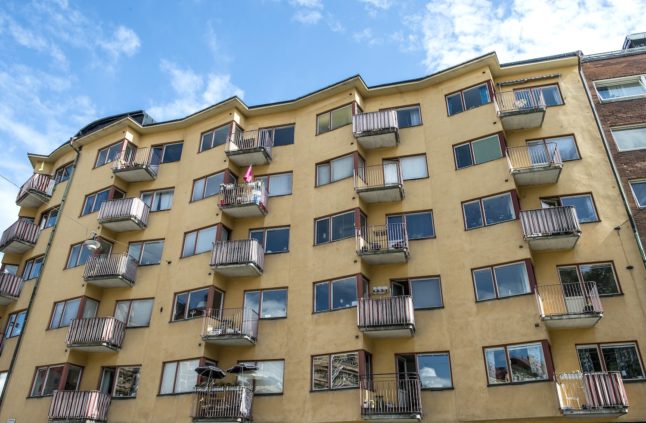You’ll hear people talking about renting first-hand (första hand) or second-hand (i andrahand), and the key difference between the two is who you’re renting from – but there are wider implications.
With a ‘first-hand’ rental contract, you rent directly from the landlord. That could be a municipality or a rental agency, but these properties are subject to state-regulated rent controls, which are intended to keep prices reasonable.
You can usually stay in these properties for as long as you like, provided you don’t break the terms of your contract (for example by disturbing your neighbours or failing to maintain the property or pay rent). You pay bills like electricity on top of the fixed rent.
The catch is that these are generally allocated via a queue system: you sign up, in some cities pay a nominal fee each year and earn credits the longer you queue, which give you higher priority when a property becomes available. A national housing shortage means you might be waiting for many years or even decades before you’re eligible for somewhere first-hand.
If you want to join the queue, it’s worth shopping around. Queue times vary between municipalities, so a suburb of a large city might have a much shorter wait time, and you can sometimes find queues specifically for young people or retirees.
How to claim back money if you’ve been paying too much rent in Sweden
Second-hand renting is the Swedish term for subletting.
In this case, you’re not renting directly from the people responsible for the building, but you rent either from someone with a first-hand contract themselves (known as a hyresrätt) or from someone who has bought their property (called a bostadsrätt if it’s an apartment).
The person you rent from needs to have the permission of the building’s housing association in order to sublet (you should ask to see this) and most associations have a cap on how long the property can be rented out second-hand for – often a maximum of a year, sometimes with the possibility of extension.
Private individuals in Sweden are not allowed to rent out their accommodation solely for profit, so even though these aren’t subject to rent controls there are still caps on how much your landlord charge you.
Rent must be ‘reasonable’, which means: basic rent (the amount the landlord pays if they are renting first-hand, a proportion of the total rent if you’re lodging, or an estimate of the cost based on similar apartments if your landlord owns the apartment), an additional 10-15 percent if the apartment is furnished, fees for any other services included in the contract (internet, a parking space, electricity, TV, etc). If your landlord owns the apartment, they may also add on four percent of the home’s market value to cover the ‘cost of capital’.
In other words, it will cost more than a first-hand contract, especially if you rent from someone who owns their apartment in an expensive area rather than someone renting themselves. But as long as your landlord is following the law (which unfortunately isn’t always the case) rent shouldn’t be outrageously high.
Whether you’re a first- or second-hand renter, you always have rights to certain basic standards, for example a comfortable temperature in the apartment, the right to water and heating, and the right to use the home (without your landlord entering unexpectedly) and have guests over.




 Please whitelist us to continue reading.
Please whitelist us to continue reading.
Member comments